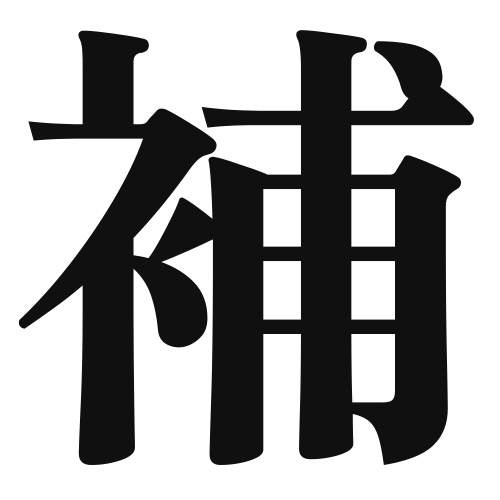1. Overview of Meaning
The kanji “補” (ho) means “to supplement” or “to assist.” It conveys the idea of providing additional support or filling in gaps, whether in a physical, emotional, or conceptual sense.
2. Formation and Radical
The kanji “補” is a compound character (会意文字) that combines two elements: the radical “衣” (clothing) and the phonetic component “報” (to report). The clothing radical suggests a connection to covering or protection, while the phonetic part contributes to the pronunciation.
The radical “衣” is often associated with clothing or garments, which can symbolize protection or support in a broader context.
3. Examples of Usage
Common words and phrases that include “補” are:
- 補助 (hojo) – assistance or support
- 補充 (hojuu) – replenishment or supplementation
- 補償 (hoshou) – compensation
Example sentences in daily conversation:
- このプロジェクトには、さらなる補助が必要です。
- 彼は私の意見を補充してくれました。
4. Synonyms and Antonyms
Similar kanji with related meanings include:
- 支援 (shien) – support, which emphasizes providing help or backing.
- 援助 (enjo) – assistance, often used in contexts of aid or help.
Antonyms include:
- 妨害 (bougai) – obstruction, which means to hinder or prevent.
5. Cultural and Historical Background
The kanji “補” is often used in Japanese culture to express the importance of support and assistance in various aspects of life, including community and family. It reflects the value placed on helping one another.
Proverbs and idiomatic expressions that include “補” are:
- 助け合い (tasukeai) – mutual assistance, emphasizing the importance of supporting each other.
